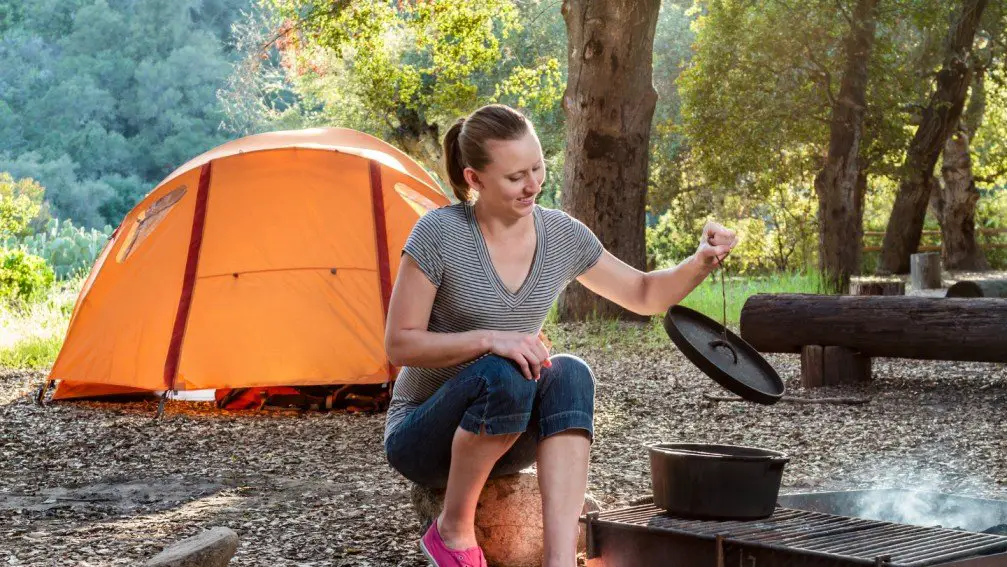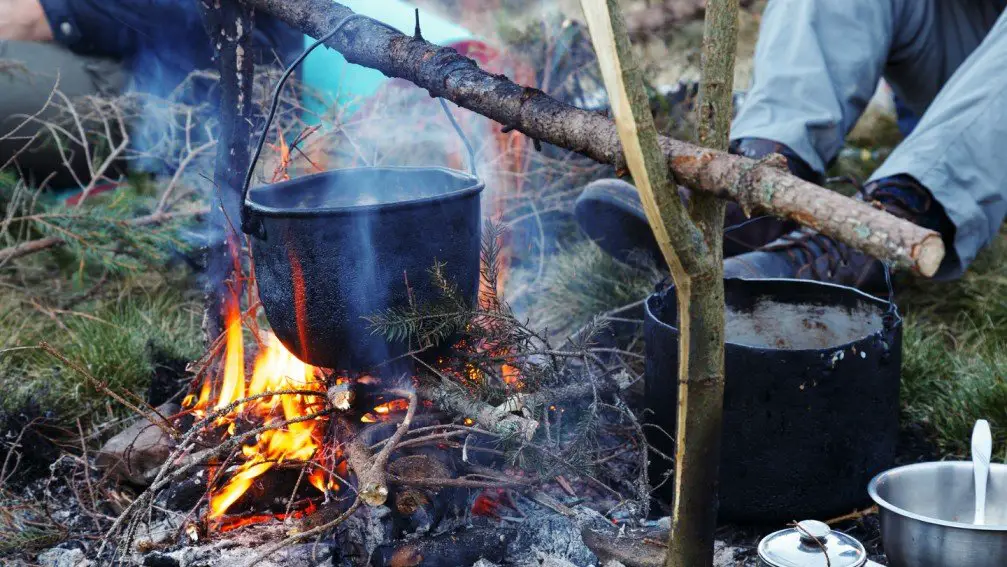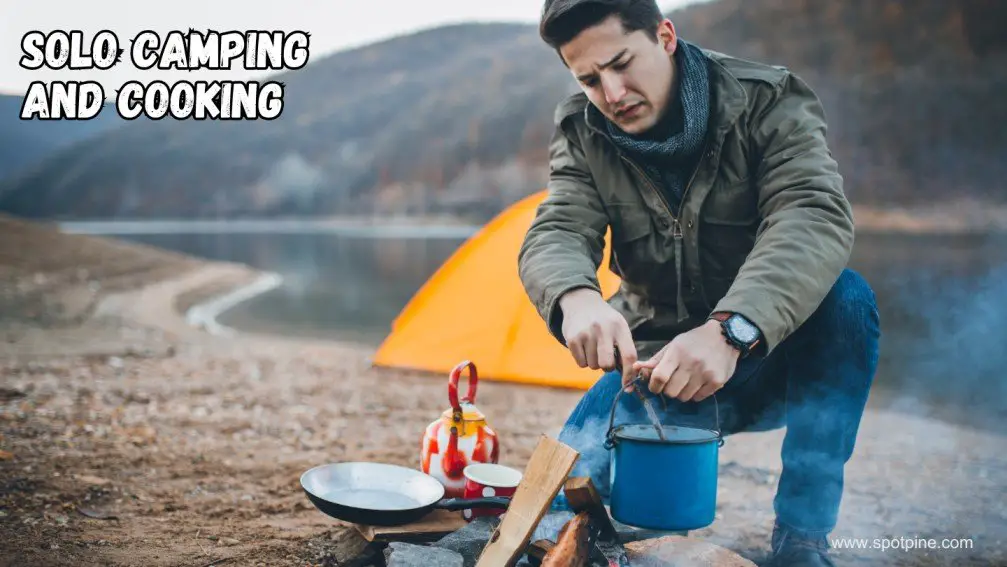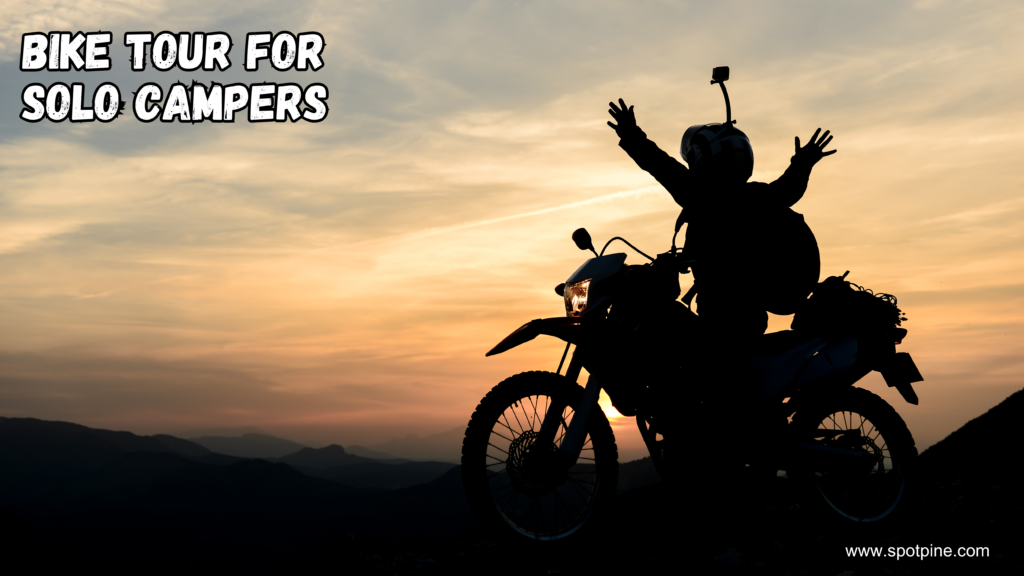Solo camping and cooking can be an enjoyable and rewarding experience. It can be a great way to connect with nature and challenge oneself in the great outdoors.
For those seeking adventure and solitude, solo camping is a popular activity. Whether you’re backpacking deep into the wilderness or setting up camp in a nearby state park, solo camping can provide an opportunity to disconnect from the distractions of everyday life and reconnect with nature.
Of course, with solo camping comes the need to be self-sufficient, and that includes cooking your own meals. While it may seem daunting at first, cooking over an open flame or camp stove can be a fun and rewarding experience. We’ll cover some essential tips and tricks for solo camping and cooking, including what to pack, how to set up camp, and some easy and delicious meal ideas. So grab your tent, your backpack, and your appetite, and let’s hit the trail!
Benefits Of Solo Camping
Going on a solo camping trip has numerous benefits, not just in terms of adventure but also for mental and physical health. Spending time in the great outdoors can work wonders for overall well-being. Being surrounded by nature does wonders for the mind and body because it helps improve concentration and productivity. It is an excellent way to feel more grounded and connected to nature. The sense of solitude and self-reliance that comes with solo camping can help improve self-confidence and resilience, while also helping individuals sharpen their problem-solving skills. Camping also provides an excellent opportunity for physical exercise, such as hiking or biking, which helps promote cardiovascular health and overall physical fitness. The entire experience of camping, particularly cooking over an open fire, is highly therapeutic and a great way to relax and unwind.
Credit: brookebeyond.com
Choosing The Perfect Site
Choosing the perfect site for your solo camping and cooking adventure is crucial to ensure a safe and enjoyable experience. First, consider the location and terrain of the campsite. Look for a flat and dry spot to set up your tent and cooking area, away from any potential hazards such as falling rocks or unstable ground. Be mindful of the weather forecast and choose a site that provides enough shade and protection from the elements.
Secondly, check the local regulations and safety guidelines for camping and cooking in the area. Make sure you obtain any necessary permits and follow the guidelines for storing food and waste. Research about any potential wildlife or insect activity in the area and take necessary precautions to avoid encounters.
By carefully choosing your campsite, you can set yourself up for a peaceful and successful solo camping and cooking trip.

Essential Gear For Solo Camping
When camping alone, having the right gear can make or break the experience. It is important to have a shelter and sleep system that can protect you from the elements and provide a comfortable place to sleep.
| Camping Gear | Description |
| Shelter | A sturdy and lightweight tent that can withstand harsh weather conditions. A bivy sack or hammock can be a good alternative. |
| Sleeping bag | A high-quality sleeping bag that can keep you warm and comfortable. |
| Sleeping pad | A pad that can provide insulation and cushioning to help you sleep well. |
Cooking is another essential aspect of solo camping. You will need cooking equipment and utensils that are easy to use and lightweight.
| Cooking Gear | Description |
| Camp stove | A lightweight and portable stove that can cook your meals quickly and efficiently. |
| Cookware | Pots, pans, and utensils made from lightweight materials such as titanium or aluminum. |
| Food storage | Airtight containers to store your food and keep it fresh. |
Finally, navigation and lighting tools are essential for solo camping. These tools can help you find your way and stay safe in unfamiliar surroundings.
| Navigation and Lighting | Description |
| Map and compass | A map and compass can help you navigate through unknown terrain. |
| Headlamp | A hands-free light source that can illuminate your path. |
| Flashlight | A compact and reliable flashlight that can be used as a backup. |
Food Planning And Preparation
For a successful solo camping and cooking trip, it is important to consider nutritional value and caloric needs. Plan meals and snacks ahead of time to ensure you have enough food for the duration of your trip. Pack high protein and high fiber foods to keep you feeling full and energized throughout the day. When preparing your meals, keep in mind food safety guidelines to prevent any illness. Use a food thermometer to ensure meats are cooked to the appropriate temperature, and store perishable items in a cooler with ice. With a bit of planning and preparation, you can enjoy delicious and nutritious meals on your solo camping trip.
| Food Safety Guidelines | Cooking Temperature |
| Wash hands frequently | Poultry – 165°F (74°C) |
| Use separate cutting boards for raw meats and vegetables | Pork – 145°F (63°C) |
| Keep perishable items in a cooler with ice | Beef – 145°F (63°C) |
| Use a food thermometer to ensure meats are cooked to appropriate temperature | Fish – 145°F (63°C) |
What are the Best Food for Solo Camping?
Cooking Methods And Recipes
To ensure a successful solo camping and cooking experience, it’s important to utilize various cooking methods and recipes. Campfire cooking techniques such as grilling, roasting, and baking can create delicious meals while enjoying the great outdoors. One-pot meals and foil packet recipes can simplify cooking and cleanup while providing hearty and filling options. It’s also important to take special considerations for dietary restrictions, such as utilizing gluten-free and vegan recipes or bringing along necessary appliances or utensils. Embrace creativity and experimentation to take your solo camping cooking to the next level.

Campfire Safety And Leave No Trace Principles
Building and maintaining a safe campfire is crucial for both your own safety and the environment. Start by choosing a suitable location for your campfire that is not near any trees or flammable materials. Clear the area around the campfire of all debris and create a ring of stones or a fire pit.
When starting your fire, use only small twigs and leaves for kindling. Do not use gasoline or other accelerants to start your fire, and always keep a bucket of water or sand nearby in case of emergency.
Proper disposal of waste and garbage is also essential when camping. Always pack out what you pack in, and dispose of waste in the appropriate manner. Dig a hole for human waste and cover it with soil, or use a designated bathroom facility if one is available.
Minimizing your impact on the environment is critical for protecting the natural beauty of the area you are camping in. Use biodegradable soap for washing dishes, avoid disturbing the local wildlife, and leave all natural objects and landmarks undisturbed.
| Do | Don’t |
| Choose a safe location for your fire | Build a fire near trees or flammable materials |
| Clear the area around your campfire | Leave debris around your fire |
| Use small twigs and leaves for kindling | Use gasoline or other accelerants to start your fire |
| Pack out what you pack in | Leave waste and garbage behind |
| Dispose of waste properly | Leave human waste on the ground |
| Use biodegradable soap for washing dishes | Use non-biodegradable soap for washing dishes |
Mindfulness And Self-care In Solo Camping
Solo camping can be an amazing experience for your mental health. Being mindful can help you further enjoy your time in solitude. Try focusing on your breath and the sounds around you for a few minutes each day. This helps get away from the noise of everyday life. Carry comforting items like a favorite blanket, book or tea that can help when feeling homesick or lonely. Create a routine that works for you when camping. It can give you a sense of structure and comfort. Try to sleep and wake up at consistent times. You may also find it helpful to start a daily journal. Reflecting on the day and jotting down your thoughts can help with self-discovery.
Stay Present And Focused
Focusing on your present state can help calm nerves. Do not let being alone in nature scare you. Instead, embrace it by keeping your mind focused on the beauty of nature around you. Practice mindful walking and take note of each step to keep your mind centered. Have a clear intention for your trip, whether it is to relax or challenge yourself. This will help you stay focused and less distracted.
Bring Comfort And Self-care Items
Don’t forget to bring a self-care kit. A small kit can include things like sunscreen, insect repellent, face wipes, hand sanitizer, and your toothbrush. Self-care items can also include a portable speaker, camera or even a comfy pillow. These items can give you comfort and make your camping trip more enjoyable.
Develop Your Own Routine And Practices
The best way to improve your camping experience is to develop your own routine and practices. This can make you feel more comfortable and safe. Having a routine can help keep you motivated and give you something to look forward to each day. It can be something as simple as setting up a morning meditation, cooking a meal, or even a short hike. Remember that solo camping is an experience in which you can grow and learn from. Embrace the opportunities and challenges that come your way!
Solo camping and cooking can be a life-changing experience that provides an opportunity to spend some quality time with yourself. It may seem daunting at first, but with proper preparation and planning, it can be a rewarding adventure. By following these tips and tricks, you can enjoy delicious meals, connect with nature, and engage in activities that help you unwind from the stresses of everyday life.
If you haven’t tried solo camping and cooking before, give it a shot – you never know what kind of experience you might have!



